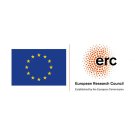POPULIZATION - Behavioral Foundations of Populism and Polarization

Salvatore Nunnari
Principal Investigator
ERC-2019-STG
February 2020 - January 2026
Grant agreement ID: 852526
Since the Great Recession of 2008, populist parties have scored major electoral successes around Europe. Nonetheless, the populist map of Europe has mixed colors: in some countries, voters rally behind right-wing parties promising closed borders while, in others, resentment towards rising inequality has fuelled left-wing movements; some other countries have been less susceptible to populist rhetoric. Why are populist parties more successful in some places (or times) compared to others? What makes right or left populism more prominent in some countries (or after certain crises)? This project tackles these questions with the tools of behavioral political economy, a blossoming field at the intersection of behavioral economics and political economy, which applies insights from cognitive psychology and methodologies from microeconomics to understand political behavior. I will address two fundamental issues that can shed light on the puzzling pattern of support for populism: the heterogeneity and time (in)stability of preferences and cognitive abilities; and the role of limited attention in shaping preferences and information processing. First, I will focus on the demand side of the market for policies, voters. I will set up and maintain a novel longitudinal study, the European Preferences and Cognition Dataset (EPCD, Project 1), collecting repeated measures of economic preferences, social preferences and cognitive abilities for the same individuals in representative samples of European countries. Second, I will focus on the supply side, politicians. Building on the empirical evidence from the EPCD, I will develop theoretical models to explore how political candidates and elected representatives react to voters’ behavioral factors and unstable preferences (Projects 2-4). The combined output of these projects will greatly improve our understanding of European citizens' political preferences and how they affect economic and political outcomes.

This project has received funding from the European Research Council (ERC) under the European Union’s Horizon 2020 research and innovation programme.